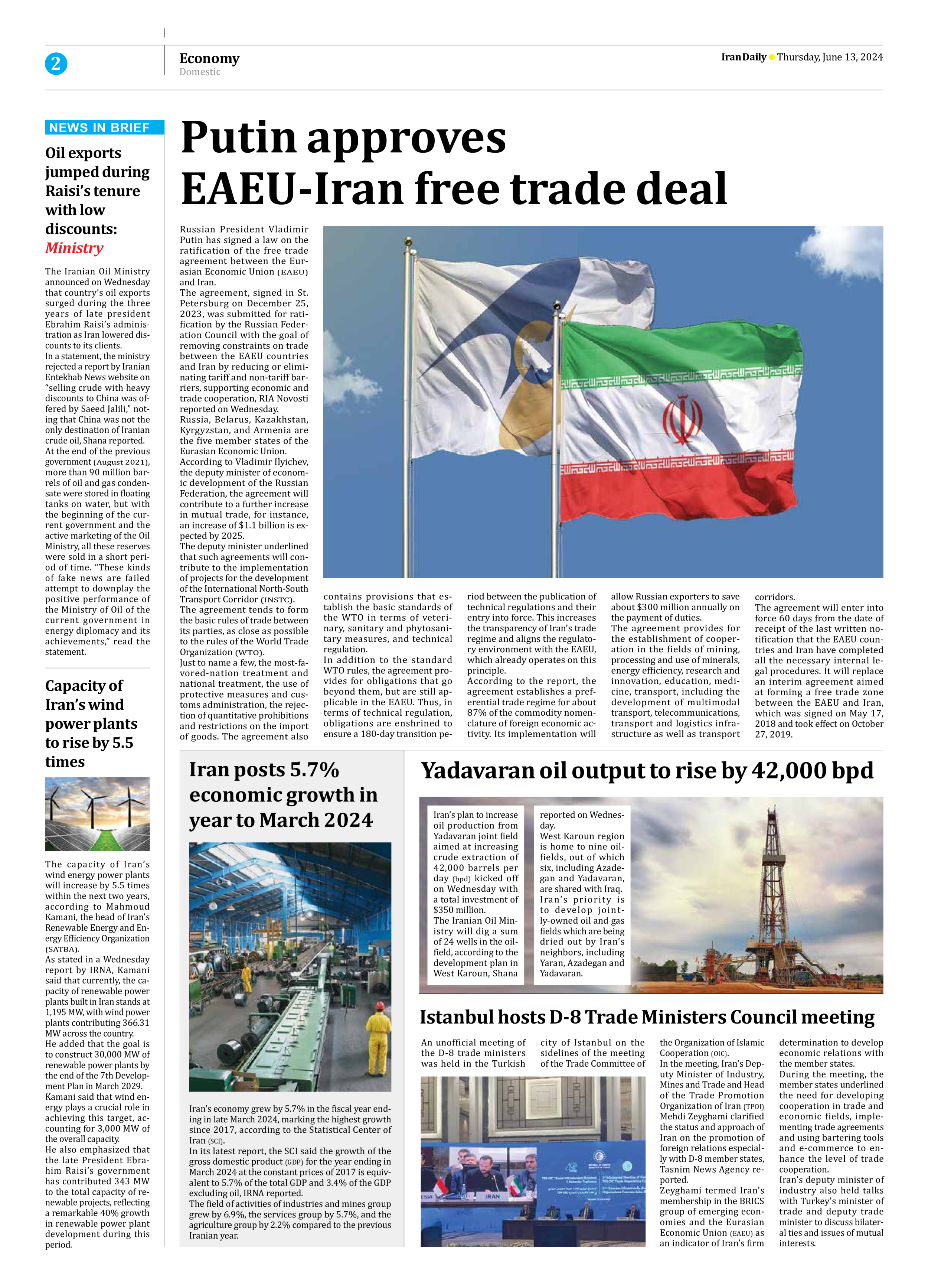
Copy in clipboard...
Putin approves EAEU-Iran free trade deal
The agreement, signed in St. Petersburg on December 25, 2023, was submitted for ratification by the Russian Federation Council with the goal of removing constraints on trade between the EAEU countries and Iran by reducing or eliminating tariff and non-tariff barriers, supporting economic and trade cooperation, RIA Novosti reported on Wednesday.
Russia, Belarus, Kazakhstan, Kyrgyzstan, and Armenia are the five member states of the Eurasian Economic Union.
According to Vladimir Ilyichev, the deputy minister of economic development of the Russian Federation, the agreement will contribute to a further increase in mutual trade, for instance, an increase of $1.1 billion is expected by 2025.
The deputy minister underlined that such agreements will contribute to the implementation of projects for the development of the International North-South Transport Corridor (INSTC).
The agreement tends to form the basic rules of trade between its parties, as close as possible to the rules of the World Trade Organization (WTO).
Just to name a few, the most-favored-nation treatment and national treatment, the use of protective measures and customs administration, the rejection of quantitative prohibitions and restrictions on the import of goods. The agreement also contains provisions that establish the basic standards of the WTO in terms of veterinary, sanitary and phytosanitary measures, and technical
regulation.
In addition to the standard WTO rules, the agreement provides for obligations that go beyond them, but are still applicable in the EAEU. Thus, in terms of technical regulation, obligations are enshrined to ensure a 180-day transition period between the publication of technical regulations and their entry into force. This increases the transparency of Iran’s trade regime and aligns the regulatory environment with the EAEU, which already operates on this principle.
According to the report, the agreement establishes a preferential trade regime for about 87% of the commodity nomenclature of foreign economic activity. Its implementation will allow Russian exporters to save about $300 million annually on the payment of duties.
The agreement provides for the establishment of cooperation in the fields of mining, processing and use of minerals, energy efficiency, research and innovation, education, medicine, transport, including the development of multimodal transport, telecommunications, transport and logistics infrastructure as well as transport
corridors.
The agreement will enter into force 60 days from the date of receipt of the last written notification that the EAEU countries and Iran have completed all the necessary internal legal procedures. It will replace an interim agreement aimed at forming a free trade zone between the EAEU and Iran, which was signed on May 17, 2018 and took effect on October
27, 2019.







